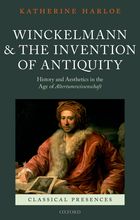
11am 6th April 2021 – 3:30pm 8th April 2021 (GMT)
Join Prof. Harloe, Prof. Goff and Joe Watson as they discuss how to make Classics more inclusive as part of The Classical Association’s Annual Conference. Alongside a host of students and specialists from across the UK this workshop will kick off the two-day, free, online conference event with a workshop entitled- Inclusive Classics and Pedagogy: Teachers, Academics and Students in Conversation Towards a More Inclusive Classics.
To register for the conference, please fill in our online form here.
PROGRAMME
Tuesday 6 April
11am – 12.30pm: Inclusive Classics and pedagogy: teachers, academics and students in conversation A follow up to the Towards a More Inclusive Classics Workshop held 25-26 June 2020.
Panel co-chairs: Professor Barbara Goff, University of Reading and Dr Alexia Petsalis-Diomidis, University of St Andrews
OUTLINE
Spotlight 3-minute talks: ‘visions of inclusive classics’
· Lauren Canham, Trainee Teacher at Jane Austen College, Norwich: ‘Ancient Paradigms of Disability on the Curriculum’
· Hardeep Dhindsa, PhD candidate, Department of Classics, King’s College London: ‘Chromophobia: Recolouring the Classics’
· Dr Victoria Leonard, Research Fellow at the Centre for Arts, Memory and Communities, Coventry University: ‘Caring in Classics Network’
· Joe Watson, PhD candidate, Department of Classics and Ancient History, University of Durham: ‘Queer Classics and Classics for Queers; or, Beyond Gay Men Reading Plato’
· Dr Bobby Xinyue, British Academy Early Career Fellow, Department of Classics and Ancient History & Centre for the Study of the Renaissance, University of Warwick: ‘Race, Inclusivity, and the Future of Classics’
Opening remarks:
· Dr Alexia Petsalis-Diomidis, University of St Andrews
· Professor Barbara Goff, University of Reading
Panel discussion on inclusive classics in teaching and learning
· Tristan Craig, Undergraduate Representative for History, Classics and Archaeology, University of Edinburgh
· Florence, a Classical Civilisation student, Runshaw College, Lancashire
· Dr Justine McConnell, Senior Lecturer in Comparative Literature, King’s College London
· Claude McNaughton, Teacher, Pimlico Academy, London
· Rosie Tootell, Teacher, Runshaw College, Lancashire
· Aaron, a Latin student, Pimlico Academy, London
Break out rooms: ‘turn to your neighbour’, 10-minute exchange of responses to the panel
Closing remarks:
· Dr Amy Coker, Cheltenham Ladies’ College and University of Bristol
· Professor Katherine Harloe, University of Reading
· Dr Arlene Holmes-Henderson, University of Oxford
· Professor Neville Morley, University of Bristol
· Professor Isabel Ruffell, University of Glasgow
· Professor Tim Whitmarsh, University of Cambridge
2.00pm – 3.30pm: Accessing Classical Civilisation and Ancient History in Britain, past and present perspectives (under the auspices of ACE)
Professor Edith Hall, Dr Henry Stead, Dr Arlene Holmes-Henderson and Peter Wright
Wednesday 7 April
2:00pm – 2.45pm: Presidential Address by Mari Williams, winner of the Daniel Owen Memorial Prize at the National Eisteddfod of Wales in 2018, for her novel Ysbryd yr Oes (‘Spirit of the Age’)
2.45pm – 3.30pm: Presentation of the CA Prize for 2021 and the inaugural CA Teaching Awards by Natalie Haynes
7.00pm – 8.30pm: Greek theatre online: An evening of classics-inspired theatre, featuring new material from three UK-based groups, Out of Chaos and By Jove theatre companies, and film company Barefaced Greek, followed by a Q&A chaired by Professor James Robson
Thursday 8 April
11am – 12 noon: Developing Classics in the local community: CA Branches in 2021
Katrina Kelly (CA Branches Officer and Chair of Lytham St Annes CA) and colleagues from around the regions
2.00pm – 3.30pm: Classics in the marketplace: being a Classicist in public
Dr Liz Gloyn, Dr Jane Draycott, Dr Mai Musié and Professor Neville Morley
FAQs
When is the Conference taking place?
6-8 April 2021
Will there be any face-to-face events? –
No, everything will take place online.
Is there a fee? – No, all events are free. You can attend as many or as few as you wish.
Do I need to be a member of the Classical Association to attend? – No, you may attend regardless of your membership status.
Can I submit a paper/panel to be presented? – Unfortunately not, this year’s conference focuses on key issues facing classicists, including inclusivity, employability and the performance of classical texts in the online world, and we will have a limited number of invited speakers/panels.
How do I attend? – All delegates will be contacted closer to the event via email with links and instructions about how to join the sessions.
How do I get in touch with you for more information? – Please email CA2021@classicalassociation.org
You can view full details of the provisional programme here.
Abstracts are available here.



 We would like to bring to your attention a fully-funded PhD studentship:
We would like to bring to your attention a fully-funded PhD studentship:

